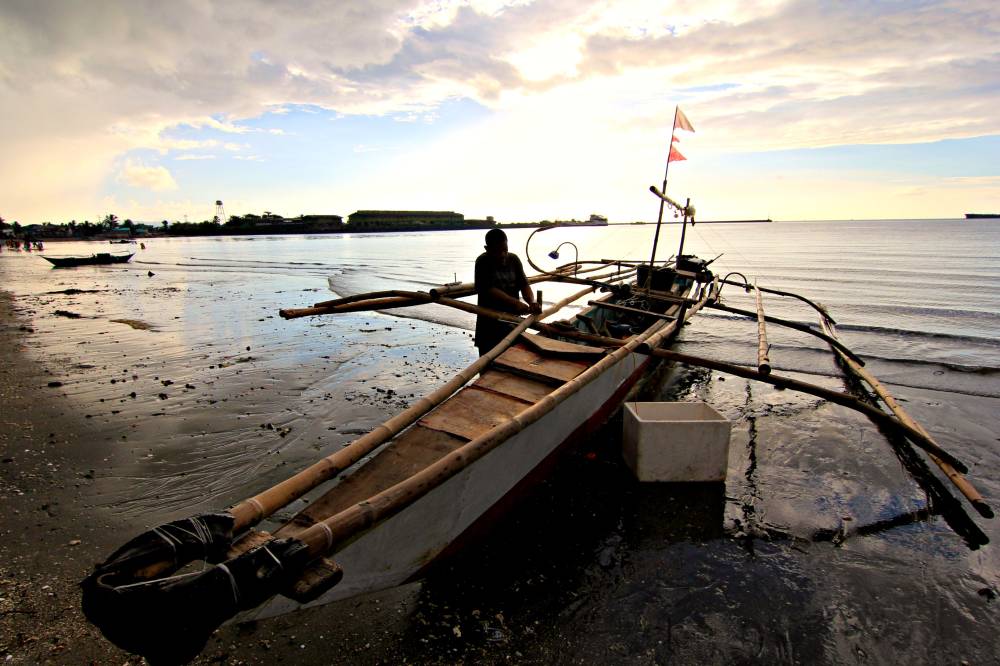Iloilo to contest SC ruling on commercial fishing; Quezon group demands action

ILOILO CITY—The Iloilo provincial government is set to challenge a Supreme Court (SC) ruling that allows commercial fishing vessels to operate in municipal waters.
Dr. Ildefonso Toledo, provincial agriculturist, said his office has started compiling position papers from 19 coastal municipalities in Iloilo, fishers groups, and other stakeholders to formally oppose the high court’s decision.
He warned that the ruling could devastate local fishing communities and emphasized the need for a collective stand against it.
In Quezon province, marginalized fishermen and a non-government organization (NGO) also called on the provincial government and local officials to support their fight to reclaim the 15-kilometer municipal waters, which have long been the traditional fishing grounds of small-scale fishermen.
“Take a stand—just like other cities, towns, and provinces—and pass resolutions and petitions to the Supreme Court (SC) to reverse its decision in favor of small-scale fishermen who rely on municipal waters for their livelihood and sustenance,” Edward Diaz, a fishermen leader in Lucena City, told government officials in a local radio interview on Friday.
Jay Lim, spokesperson for the local NGO Kapatiran at Alyansang Alay para sa Kaunlaran ng Bayan–Quezon (Kaakbay-Quezon), also challenged government officials in Quezon to take the lead in defending their struggling constituents.
Quezon province has 34 coastal towns out of its 42 municipalities: 17 along Lamon Bay in the Pacific Ocean, 12 off Tayabas Bay facing the South China Sea, and five along Ragay Gulf.
Legal team at work
Lim said that fishermen leaders in Quezon are actively mapping out plans and strategies to launch a unified campaign and connect with other small fisher groups nationwide.
In Iloilo, the province was a step ahead as Gov. Arthur Defensor Jr. was expected to take Iloilo’s case directly to the SC and the Bureau of Fisheries and Aquatic Resources.
The provincial government’s legal team has been working to mobilize support from local governments, fisherfolk associations, and national organizations, including the League of Municipalities of the Philippines and the Union of Local Authorities of the Philippines.
The local government, however, has yet to reveal the specific legal moves they will apply to contest the high court’s ruling.
Like those in Quezon, small-scale fisherfolk in Iloilo feared that allowing commercial fishing vessels to operate in municipal waters would cripple their already struggling industry.
Progressive fisherfolk group Pambansang Lakas ng Kilusang Mamamalakaya ng Pilipinas (Pamalakaya)-Panay said commercial fishing vessels are capable of hauling up to 3,055 kilograms of fish per hour compared to the half a kilogram typically caught by small-scale fishers.
“The Supreme Court’s decision which permits the continued exploitation of municipal waters by large-scale business interests clearly favors big businesses over the majority of small-scale fishermen,” Panalakaya-Panay said in a statement.
‘Miserable’
Adding to the small fishers’ frustration was the lack of state support which they argued kept them trapped in poverty, it added.
“Fishermen remain the poorest, followed only by farmers. The extreme lack of government support to improve the small-scale fishing sector, laws and ordinances that penalize them further, and the absence of market support for fishers’ products keep fishermen in miserable conditions,” the group said.
The ruling, issued by the SC’s first division last month, upheld the decision of the Regional Trial Court (RTC) in Malabon that declared that the preferential access provision in the Fisheries Code of 1998 unconstitutional.

















